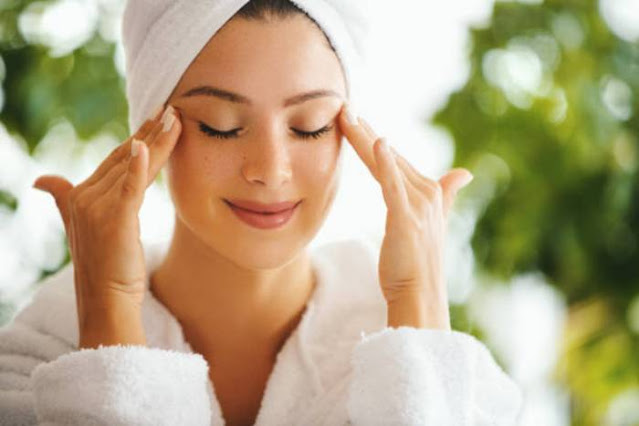
Introduction
Radiant skin is a coveted attribute that exudes health,
vitality, and beauty. However, achieving and maintaining a radiant complexion
requires more than just luck; it requires a holistic approach that encompasses
skincare routines, lifestyle choices, and a deep understanding of skin health.
In this article, we dive into radiant skin, exploring the factors contributing
to its appearance, skincare role, the importance of nutrition and lifestyle
habits, and practical techniques to enhance and maintain skin radiance.
Discover the secrets to unlocking your skin's natural glow and embracing a more
radiant, confident version of yourself.
I. Understanding Radiant Skin
The Science of Skin Radiance: Exploring the physiological
factors contributing to radiant skin, including blood circulation, collagen
production, and cellular turnover, and discussing how these processes influence
skin appearance and luminosity.
Common Signs of Radiant Skin: Identifying the characteristics
of radiant skin, such as an even skin tone, smooth texture, natural luminosity,
and a youthful appearance, and discussing how these signs can be indicators of
overall skin health.
Factors Influencing Skin Radiance: Discuss the internal and
external factors that affect skin radiance, including genetics, age,
environmental factors, lifestyle choices, and skincare habits. It highlights
the interconnectedness of these factors in achieving radiant skin.
II. Nurturing Radiant Skin with Skincare
Daily Skincare Routine: Discuss the essential steps of a
comprehensive daily skincare routine, including cleansing, toning, exfoliating,
moisturizing, and protecting against UV damage and highlighting the importance
of consistency and using products suitable for your skin type.
Targeted Treatments: Exploring specific skincare treatments
and ingredients that enhance skin radiance, such as serums, masks, vitamin C,
hyaluronic acid, and antioxidants. Discussing their benefits and how they
address common skin concerns.
Sun Protection: Emphasizing the significance of sun
protection in maintaining radiant skin and discussing the damaging effects of
UV radiation on skin health and the importance of using broad-spectrum
sunscreen and adopting sun-safe practices.
III. Nourishing Radiance from Within
Balanced Nutrition: Exploring the role of nutrition in
promoting radiant skin and discussing the importance of a composed diet rich in
fruits, vegetables, whole grains, lean proteins, and healthy fats and highlighting
vital nutrients, such as vitamins A, C, E, and omega-3 fatty acids, and their
impact on skin health.
Hydration: Discuss the importance of hydration in achieving
radiant skin and explore the benefits of drinking adequate water and
incorporating hydrating foods and beverages into the diet.
Lifestyle Habits: Exploring the impact of lifestyle habits
on skin radiance and discussing the importance of quality sleep, stress
management, regular exercise, and avoiding smoking and excessive alcohol
consumption.
IV. Enhancing Radiance with Makeup and Lifestyle Choices
Makeup Techniques: Providing makeup tips and techniques to
enhance skin radiance, such as using illuminating products, highlighting and
contouring, and choosing foundation and blush shades that complement the skin
tone.
Healthy Lifestyle Choices: Discussing the impact of
lifestyle choices on skin radiance and exploring the benefits of maintaining a
balanced work-life routine, practicing relaxation techniques, and engaging in
activities that promote mental and emotional well-being.
Skincare Beyond the Face: Recognizing the importance of
extending skincare routines to areas beyond the face, such as the neck,
décolletage, and hands, and discussing the impact of neglecting these areas on
overall skin radiance.
Conclusion
Radiant skin is not just a superficial attribute but a
reflection of overall skin health and well-being. By adopting a holistic
approach that includes a consistent skincare routine, balanced nutrition,
hydration, and healthy lifestyle choices, individuals can unlock the secrets to
radiant skin. Furthermore, embracing these practices and techniques can lead to
a more luminous, confident, and youthful complexion, helping individuals
radiate beauty from the inside out.